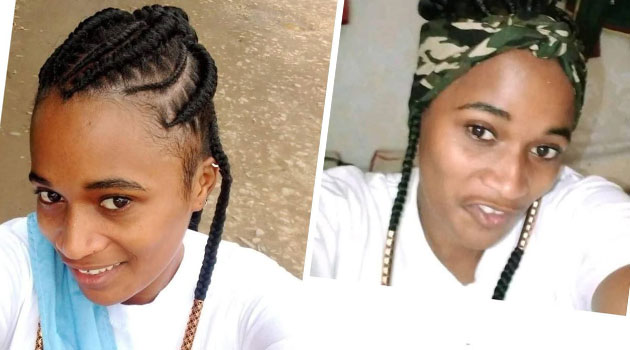
NPS denies misconduct in custodial death of Nanyuki protester » Capital News
NAIROBI, Kenya, Jul 14 – The National Police Service (NPS) has denied allegations of police misconduct in the death of Julia Njoki, a Saba Saba protester arrested in Nanyuki, even as it assured public that investigations into the matter.
Njoki, whom police identified as Juliet Wangai Kariuki, died in custody under suspicious circumstances, triggering widespread public outcry.
NPS Spokesperson Muchiri Nyaga said on Monday that Juliet was among 126 people arrested during the July 7 demonstrations and was charged with malicious damage to property under Section 339(1) of the Penal Code.
He noted that all suspects, including Juliet, were arraigned at the Nanyuki Law Courts on July 8 in good health. They pleaded not guilty and were either released on a cash bail of Sh50,000 or remanded at Nanyuki Prison.
“To date, no formal complaint has been recorded alleging any misconduct, whether by commission or omission,” Nyaga stated.
“Nevertheless, the relevant agencies will conduct swift, transparent, and credible investigations into the matter, and accountability will follow.”
Nyaga was responding to media reports and social media claims alleging police brutality in connection with the death.
Njoki’s family claimed she was remanded in police custody after her court appearance and assaulted by officers.
The family said she wasfound unconscious in her cell and rushed to hospital, but died by Wednesday, July 9.
Her aunt, Grace Rene, shared the harrowing ordeal in a Facebook post that has since gone viral, fueling renewed public outrage and demands for justice.
“I’m devastated. I’m mad. This year, something shifted. Cities that were once silent have now roared. But now, it’s hit home for me,” Rene wrote.
She also accused authorities of delaying medical attention and failing to communicate openly about Njoki’s condition.
“Julie was arrested Monday. By Wednesday, she was dead. She had been beaten. She was bleeding internally. And the system responded with delays, silence, and lies.”
A preliminary medical report obtained by the family indicates Njoki suffered blunt force trauma to the head—consistent with a severe beating.
Her death has sparked widespread condemnation from human rights groups and the public, with renewed calls for independent investigations and reforms within the National Police Service.
“This isn’t just my pain—this is Kenya’s pain,” Rene said.
“Families are losing their children. Mothers are burying their sons and daughters. We are tired; we demand truth, we demand accountability and justice.”
Law Society of Kenya President Faith Odhiambo, a vocal advocate for protester rights since the onset of anti-government demonstrations, described Njoki’s death as “too painful.”
Njoki’s case adds to a growing list of alleged custodial killings, many involving young protesters linked to the ongoing anti-government and anti-police brutality movement.
In June, Migori-based teacher and blogger Albert Ojwang also died in custody under suspicious circumstances.
He had been arrested in Homa Bay County on June 6 for allegedly defaming Deputy Inspector-General of Police Eliud Lagat and was transferred over 350 kilometers to Nairobi’s Central Police Station.
Two days later, he was found dead in his cell.
Njoki’s and Ojwang’s deaths have intensified public anger, sparking protests in major cities, including Nairobi, Kisumu, and Mombasa.